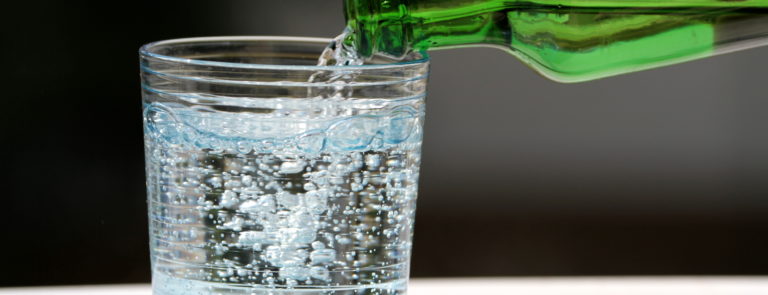Sparkling water is a lightly fizzy,
refreshing drink that’s often associated with Mediterranean elegance. Delicious as sparkling water is, many people are concerned that the carbon in sparkling water has negative health repercussions.
Some sparkling water products are naturally occurring and drawn from mineral springs. In contrast, others are created artificially by dissolving minerals in water which create carbonated bubbles. The first artificial sparkling water was made in 1740 by Joseph Priestley. He wanted to savour the sparkling water from Germany’s Pyrmont cave when he returned to his Leeds home.
1
In this article, we’ll unpack the science on sparkling water’s health benefits and drawbacks, to uncover whether sparkling water is good or bad for you, and who should avoid it.
Different benefits of sparkling water
Is sparkling water good for you? Yes, it certainly can be! Sparkling water can help to:
Improve heart health. Sparkling water seems to decrease the amount of bad cholesterol and boost the amount of good cholesterol in the body.
2
Clear throat. Sparkling water helps to reduce the need to swallow regularly in adults who feel like they have to clear their throat a lot and enhances overall swallowing efficacy.
3
Increase feelings of fullness. Enjoy a glass of sparkling water with food and feel satiated for longer than you would when drinking still water.
4
Reduce constipation. Sparkling water can reduce constipation and encourage bowel movements.
5
Improve bone health. One study proved that chickens who drank sparkling water had stronger leg bones than chickens who drank plain tap water.
6
Drawbacks of sparkling water
Despite the health benefits of sparkling water, there are some downsides:
Acid content. Sparkling water has a pH between 5 and 6, so it is more acidic than still water which has a neutral pH of 7.
7 The acid content typically produces a prickling or tingling sensation in the mouth which some people find unpleasant.
Erodes enamel (very slightly). Sparkling water’s acid content means it’s somewhat erosive to the enamel.
8 However, it’s still 100 times less harmful to enamel than a fizzy drink with high sugar content.
9
A study to show Cola drinks reduced bone density had many people concerned that other carbonated beverages, like sparkling water, had the same effect.
10 However, there’s no evidence that other fizzy drinks, including sparkling water, are harmful to bones at all.
11
Who should avoid sparkling water?
Sparkling water promises excellent benefits for many people. However, you might want to avoid sparkling water if:
You suffer from irritable bowel syndrome. Carbon dioxide can aggravate IBS symptoms by increasing bloating and gas.
12
You have enamel decay. Protect your teeth and enjoy still water with a neutral pH of 7, instead of acidic drinks like sparkling water, to prevent further deterioration.
You’re sensitive to mustard. The likelihood is if you don’t like mustard, you won’t enjoy sparkling water. The two contain a similar pH, which produces a prickling effect in the mouth.
13
Last updated: 15 October 2020
Sources
1
https://www.sciencehistory.org/distillations/magazine/powerful-effervescence
2
https://pubmed.ncbi.nlm.nih.gov/15113945/
3
https://pubmed.ncbi.nlm.nih.gov/26607248/
4
https://pubmed.ncbi.nlm.nih.gov/9009113/
5
https://pubmed.ncbi.nlm.nih.gov/21551998/
6
https://pubmed.ncbi.nlm.nih.gov/8234140/
7
https://www.bbc.com/future/article/20150911-is-sparkling-water-really-bad-for-you
8
https://pubmed.ncbi.nlm.nih.gov/17263857/
9
https://pubmed.ncbi.nlm.nih.gov/11556958/
10
https://www.medscape.com/viewarticle/461898
11
https://pubmed.ncbi.nlm.nih.gov/17023723/
12
http://edition.cnn.com/2011/HEALTH/expert.q.a/05/06/carbonated.water.jampolis/
13
https://pubmed.ncbi.nlm.nih.gov/20881114/



